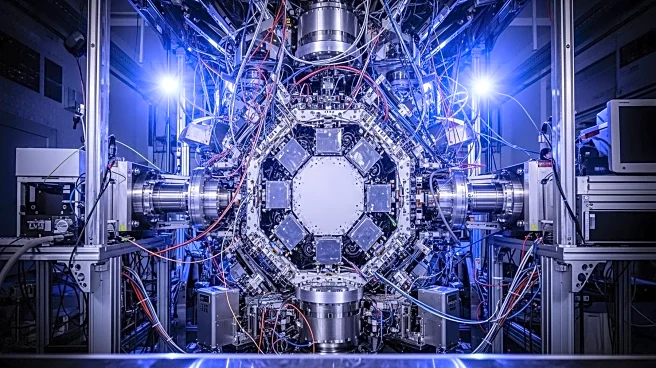What's Happening?
The QROCODILE experiment, led by the University of Zurich and the Hebrew University of Jerusalem, has achieved unprecedented sensitivity in the search for light dark matter. Utilizing superconducting detectors cooled to near absolute zero, the experiment has set new limits on how dark matter interacts with ordinary matter. This international collaboration, involving institutions such as Cornell University and MIT, recorded unexplained signals that could potentially be linked to dark matter. While these signals are not yet confirmed as dark matter, they represent a significant step forward in understanding this elusive component of the universe.
Why It's Important?
Dark matter constitutes approximately 85% of the universe's mass, yet remains one of the most mysterious aspects of modern physics. The QROCODILE experiment's advancements in detecting light dark matter particles could pave the way for groundbreaking discoveries in the field. By setting new constraints on dark matter interactions, the research opens up new avenues for exploration and could eventually lead to a deeper understanding of the universe's fundamental structure. The experiment's success also highlights the importance of international collaboration in tackling complex scientific challenges.
What's Next?
The next phase of the project, NILE QROCODILE, aims to enhance the detector's sensitivity and relocate the experiment underground to minimize interference from cosmic rays. Future upgrades will focus on improving shielding, expanding detector arrays, and lowering energy thresholds. These advancements are expected to further refine the search for dark matter and bring scientists closer to a definitive discovery. The ongoing research will continue to push the boundaries of particle physics and contribute to the broader quest to unravel the mysteries of the dark universe.










